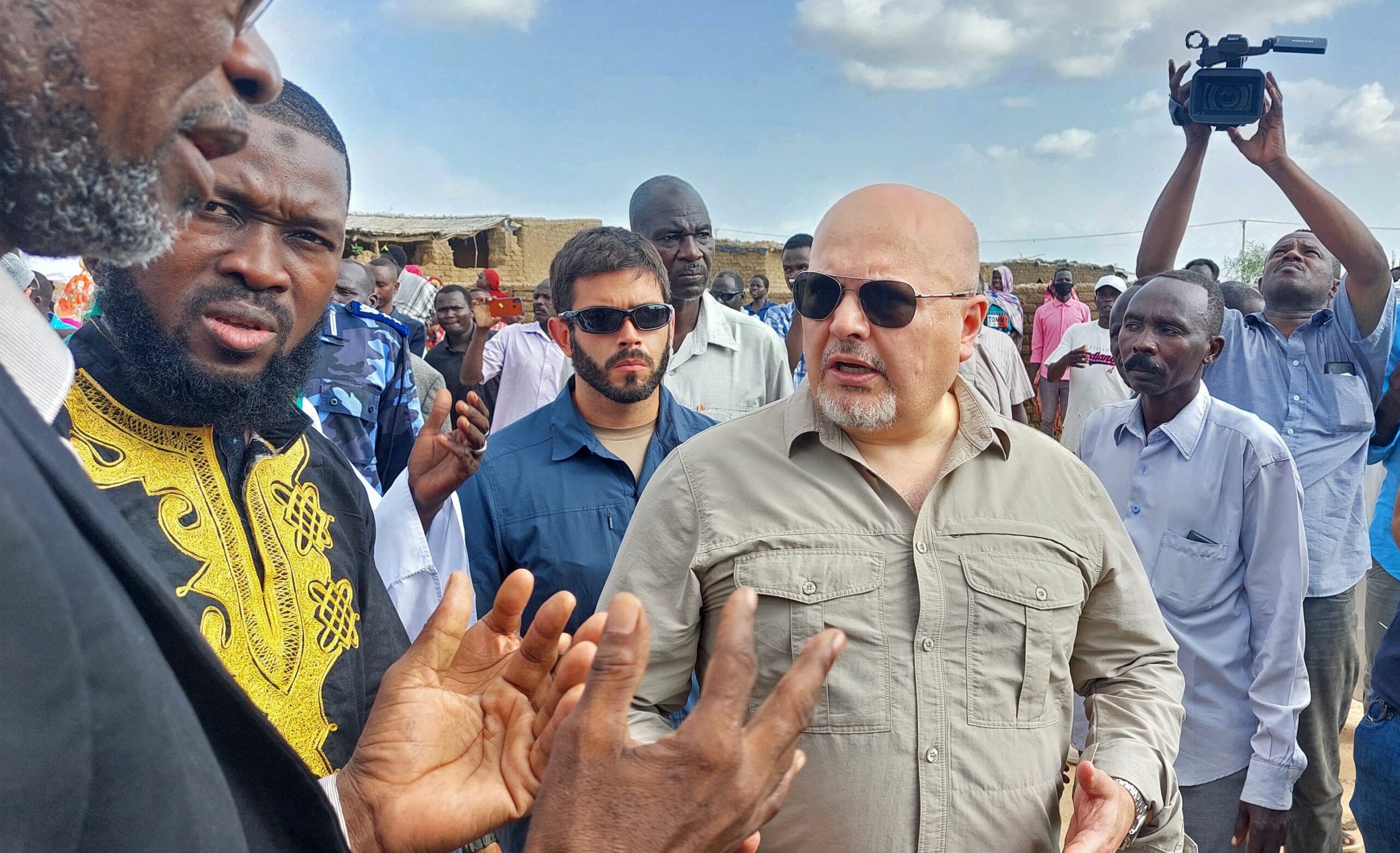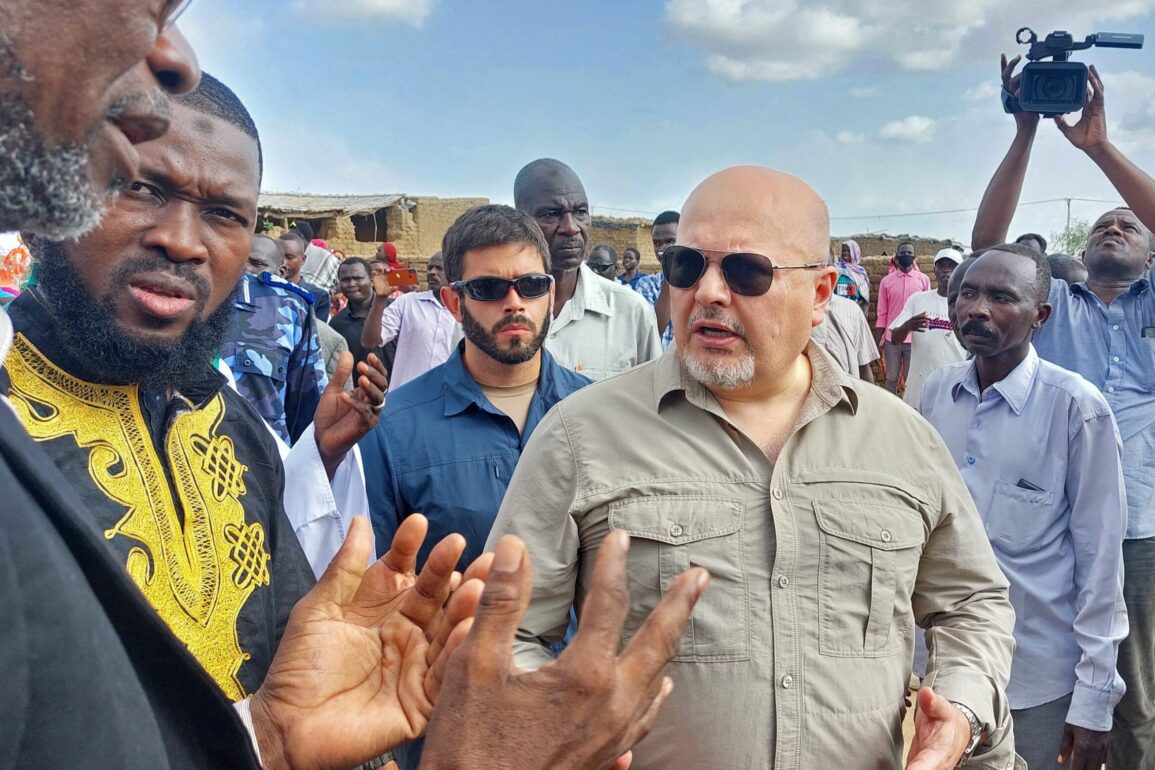
On July 13, International Criminal Court (ICC) Prosecutor Karim Khan announced his office’s latest investigation into recent attacks in Darfur, amidst the context of the ongoing conflict in Sudan that began on April 15, 2023. The announcement of a new probe, whilst in its early stages, is a significant step toward accountability—especially amidst a muted international response to abuses taking place in the region since the beginning of this latest episode of conflict. “[Our mandate is] ongoing with respect to crimes within our jurisdiction, the crimes of genocide, crimes against humanity, and war crimes; and any individual who is found to be committing those crimes within our jurisdiction will be investigated,” Khan said.
The announcement of a new probe, whilst in its early stages, is a significant step toward accountability—especially amidst a muted international response to abuses taking place in the region since the beginning of this latest episode of conflict
Darfur has been the site of atrocities that span decades. Conflict broke out in 2003 between Sudan’s central government and Darfuri rebel groups, who took up arms in response to their marginalization in the country. Omar al-Bashir, Sudan’s leader who was deposed in 2019, organized a campaign that heavily relied on mobilizing tribal Arab communities to support his war. Government forces and Arab militias clashed with rebels, but also systematically targeted non-Arab communities, groups from which rebels drew their cadres, and manipulated historical ethnic divisions in the region. Central to the government’s campaign was the mobilization of the Janjaweed, armed fighters stemming from Arab groups.
The results of these attacks were horrific atrocities that claimed the lives of nearly 400,000 people. This death toll generated regional and international attention, which later motivated the decision of the UN Security Council (UNSC) to refer the case to the ICC in 2005. The referral, based on Resolution 1593 adopted on March 31, 2005, allowed the ICC to “exercise its jurisdiction over crimes listed in the Rome Statute committed on the territory of Darfur, Sudan, from July 1, 2002, onwards.”
Importantly, the decision to refer the situation to the ICC was brought under Chapter VII of the United Nations Charter, which allows the Security Council to “determine the existence of any threat to the peace, breach of the peace, or act of aggression.” As a result, the ICC issued arrest warrants over the years against five individuals, including former President Bashir, for found evidence of crimes against humanity, genocide, and war crimes. On June 9, 2021, the ICC announced that former Janjaweed leader Ali Mohamed Ali—known as Kosheib—had surrendered himself to the court. Kosheib’s trial started on April 5, 2022, where he faced 31 counts of war crimes and crimes against humanity.
When the Rapid Support Forces (RSF) and the Sudanese Armed Forces (SAF) started fighting in Khartoum on April 15, 2023, attention quickly moved to Darfur, as observers feared the worst given the atrocities committed there two decades prior. West Darfur in particular has been the epicenter of grave crimes committed by the RSF and Arab militias in their targeting of non-Arab communities, notably crimes against the ethnic Massalit community, one of the main ethnic non-Arab groups in the region. Since the end of April 2023, thousands have reportedly been killed in West Darfur, and attackers have also targeted displaced civilians, setting their settlements ablaze. Of the nearly 2 million people who have been displaced in Sudan since the conflict started, over 280,000 have been displaced within West Darfur alone according to the United Nations, and about 150,000 have fled to Chad.
In line with the existing UNSC referral limiting the investigation to events in Darfur from April 2023, crimes committed in other cities, like Khartoum, fall out of the ICC’s remit
The most recent investigation opened by the ICC follows these troubling reports from West Darfur. In line with the existing UNSC referral limiting the investigation to events in Darfur from April 2023, crimes committed in other cities, like Khartoum, fall out of the ICC’s remit. A recurring challenge for ICC engagement in Sudan has been the issue of cooperation of local authorities. For instance, Bashir flat-out rejected the ICC’s jurisdiction and arrest warrants issued against him and two of his associates in 2008. Indeed, Article 86 of the Rome Statute compels state parties to cooperate in investigating and prosecuting crimes within the jurisdiction of the ICC. Additionally, the UNSC resolution that referred the Darfur case to the court underscores the need for cooperation from domestic actors.
Though Sudan became a signatory to the Rome Statute in 2000—the treaty that created the ICC—it did not ratify it. The former Sudanese transitional government, which was established following Bashir’s ouster in 2019, agreed to enhance cooperation with The Hague. A subsequent peace agreement for Darfur signed in 2020 also explicitly provided ground for cooperation with the ICC as part of its justice matrix. In January 2021, ICC prosecutor Khan visited Khartoum and signed a memorandum of understanding to bolster cooperation with Sudanese authorities. In August 2021, the transitional government announced it would ratify the Rome Statute, but the military coup of October 25, 2021, altered the state’s priorities, and the country has still yet to ratify it.
Progress from Sudan’s side was reportedly slow and inadequate. At that time, the former transitional authorities also contemplated different modalities on cooperation with the ICC on existing cases. On June 16, 2020, the Sudanese attorney general reaffirmed the need for cooperation with the ICC, but also indicated it might be necessary for proceedings to be held in Sudan. The option provided here, despite subsequent concrete steps failing to be actualized, raised questions on existing challenges for Sudan’s national prosecutorial and judicial system to ensure effective proceedings or uphold fair trials. For one, Sudanese laws did not, and still do not, provide command responsibility, a key principle that allows the judiciary to hold commanders liable for crimes committed, and not solely the direct perpetrators who were following orders of their superiors. Many crucial standards were also missing, including on witness protection. Moreover, genocide, war crimes, and crimes against humanity, while included in the 1991 Criminal Act (amended in 2009), have inadequate definitions: for example, the crime of genocide is more narrowly defined than under international law, and the war crimes of inhumane treatment, sexual violence, denial of fair trial, and sexual slavery, are either absent or incomplete.
Following the military coup in October 2021, the window of opportunity to progress on justice was squandered. Khan flew again to Khartoum in August 2022, almost a year after the coup took place, and this time visited Darfur, meeting with displaced communities, and signing a memorandum of understanding to facilitate further cooperation on the Kosheib trial with coup leaders, who reiterated their commitment to cooperate with the prosecutor.
While the new investigations are still empowered by the existing UNSC referral under Chapter VII, there is little to suggest that enforcement would be easier this time around
Again, commitments from Sudanese leaders did not result in any real progress. In January 2023, Khan addressed the UNSC, stating that Sudan is not meeting the minimum requirements for cooperation, and that Sudanese authorities were restricting key access to documents and witnesses, while ignoring requests for assistance and approval.
While the new investigations are still empowered by the existing UNSC referral under Chapter VII, there is little to suggest that enforcement would be easier this time around. There will be a crucial need to have more regional and international support for the efforts of the ICC, including by providing much-needed resources, but also the political support to push for better cooperation for the investigation’s potential outcomes. The ICC will be operating again in a hostile environment, this time with the world that once watched Darfur with eagle eyes disappointingly doing very little to address the gravity of the current situation.
Mohamed Osman is a Nonresident Fellow at TIMEP focusing on governance, accountability, and justice in Sudan. He has been a Researcher in Human Rights Watch’s Africa Division since 2018.
This analysis was originally published as a feature piece in Issue 3 of the Rule of Law Developments in the Middle East and North Africa newsletter, produced by Konrad-Adenauer-Stiftung Rule of Law Programme Middle East & North Africa and TIMEP.
This post was originally published on this site be sure to check out more of their content.









